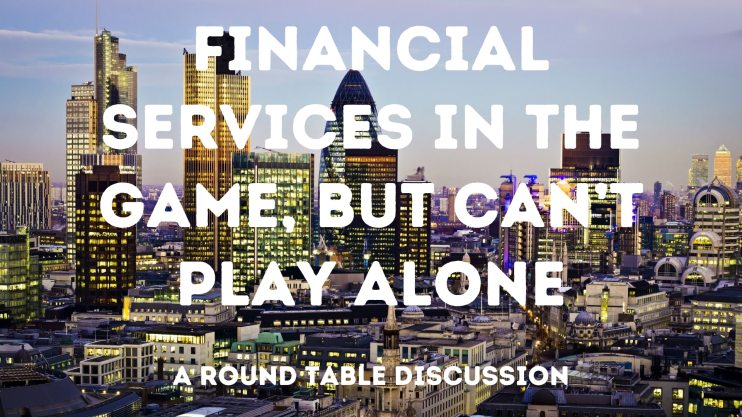
Financial services in the game, but can’t play alone

In this the first of a series of reports on the finance sector and greener economies, leading UK based financial and investment experts discuss the vital role the sector can play and the changes needed here and abroad to set it free.
Given that the drive to net zero is the planet’s ‘fierce urgency of now’ it’s unsurprising that one of the main thematic strands of the UN’s big climate conference, Cop26 is green finance.
Increasing the level of financial flows
The UN defines green financing as increasing the level of financial flows from banking, micro-credit insurance and investment from public, private and not-for-profit sectors to environmentally friendly development priorities. The goal is to manage environment risks, take up opportunities that provide environmental benefits and provide a decent rate of financial return.
Yet, without the support of financiers and investors the drive to change, which has already been slow off the grid, is likely to bunny hop down any carbon cutting roadmap that is produced and agreed on. They hold the keys to the war chest, but much is still being used in fossil fuel investment.
Clarity needed
The UK’s position is currently world leading having legally binding targets by 78% by 2035 and be net zero by 2050, but clarity on the transition has to be made.
It’s a subject that leading experts in the sector recently discussed in this Green Finance Forum.
James Alexander is the chief executive of the UK Sustainable Investment and Finance Association (UKSIF).
It represents more than 260 members managing some £10trn in assets and exists to promote the sustainable finance agenda, working closely with policymakers and others to find new ways to overcome the barriers to the growth of sustainability.
Change to survive
It’s vital that they do, because the economy is changing and they need to change with it to survive. He believes that financial sector is ready to play its part: “There are two sides to this. Financing the green, how do we pay for things like EV charging points, electric transport fleets and heating upgrades in every home.
“On the other side there’s the greening of finance, that’s thinking about how we change the way finance looks and feels and thinks about the world. On both there is a huge amount of work underway and the positive thing is that the UK is in a strong position to become and remain at the forefront globally in financial services.
“What we are seeing is infrastructure investors going into real detail about what some of the new opportunities might be; we are seeing investment managers thinking about how they can make their funds more sustainable, in the broader sense not just environmentally sustainable, but also on social and other issues.”
Yet he cautions: “We can’t expect financial services to solve this problem on its own, this has to be a team game with everyone working together to address these issues.”
One part of the puzzle
So will the global appetite for investment in green solutions help turn the economy green? Seb Beloe, partner at WHEB Asset Management, said: “It’s one part of the puzzle that we need investors to deploy capital into green technologies, so it’s a critical piece, but it’s a systemic problem so we need all parts of society to be pulling in the same direction.
“In many cases investors are ahead of regulators, ahead of government, ahead of society generally on a lot of these issues so there’s a particular leadership role that finance can play.”
Yet while the UK might be edging ahead of other territories, solutions must be found everywhere for it to work: “The urgency and the pressing nature of what needs to be achieved here, isn’t going to be solved simply by us in the UK by just focusing on the UK and we need to look at this on a global scale,” said Adam Robbins, senior investor relationship manager at Triodos Investment Management.
Retail banks playing their part
“The banking side is extremely important because we need to make sure that while we are not directly investing in anything that is having a negative impact and providing solutions, we also need to make sure that the retail banks are playing their part too.
“The amount of capital they have that is being deployed in the form of loan books and in other ways to finance sectors with a negative impact is causing a major problem and that needs to be resolved as well.”
Tackling climate change will obviously require international collaboration, but some differences in approach are inevitable. In a global environment decisions made in one place can impact the environment for everybody; meanwhile investors and financiers are operating internationally, selling products and investing internationally.
Need for global alignment
James Alexander argued that there is a huge need for global alignment: “Of course there is a global competition for innovation, skills, for headquarters for companies but should there be a global race for standards and definitions of what is or isn’t green or is or isn’t good practice?

“The more we can collaborate on that the better as long as its aligned to the scale of the challenge that we are facing. Cop26 clearly presents an opportunity for UK government to drive forward some leadership and to encourage working together however difficult.
“If we want to be acting at the pace of change that is required to hit net zero we might have to go ahead of some other countries and in the meantime to encourage those other countries to catch up.”